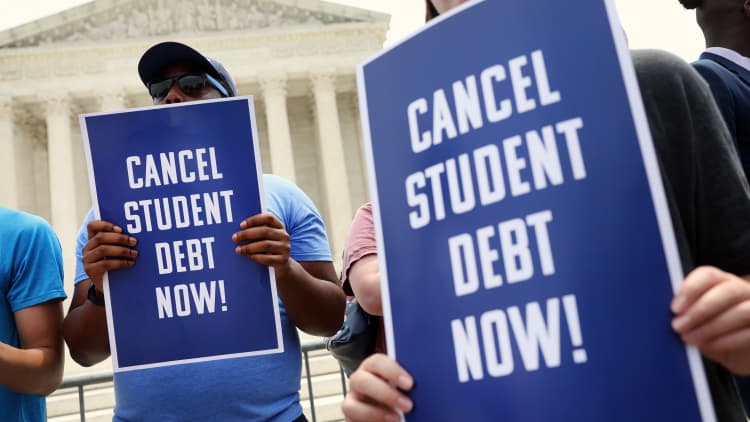Wagnerokasaki | E+ | Getty Images
When the U.S. Department of Education released the new interest rates on federal student loans Tuesday, there was some unpleasant news for parents.
So called Direct PLUS loans for parents will come with a 9.08% interest rate for the 2024-2025 academic year. That is the highest rate for parents in more than 30 years, said higher education expert Mark Kantrowitz. The current rate is 8.05%.
The last time rates for parent loans were higher, according to Kantrowitz’s data, was in 1991-92, when the rate was 9.34%. At the time, student loan rates were variable, and parent borrowers would have taken out an SLS loan, which he said is similar to the PLUS loan.
More from Personal Finance:
Interest rates on federal student loans may increase by 1 percentage point
IRS: Time to claim $1 billion in tax refunds from 2020 expires May 17
New grads may have a harder time landing their dream job
As college costs soar, more parents are joining their children in borrowing to help pay the bills, experts say.
In the 2019-2020 academic year, the average parent PLUS borrower had a balance of more than $40,000 when their child graduated, compared with around $26,000 in 2010-2011, after adjusting for inflation, Kantrowitz found.
“Parents can easily borrow more than they can afford to repay,” he said.
How much student debt parents can afford
As a general rule, Kantrowitz said, parents shouldn’t borrow more in student loans than their annual income. That total is for all their children combined.
If they stick to that ceiling, he said, “they should be able to repay it in 10 years or less.”
But each family is different.
If you’re planning on retiring within the next decade, you probably should borrow less, Kantrowitz said. That’s because you don’t want a monthly student loan bill still coming in when you’re on a fixed income.
Meanwhile, if you’re still paying off your own student debt, you’ll likely want to think twice about digging the hole deeper, experts said.
Tips for parents taking on student debt
When a parent is considering taking on student loans after their child has maxed out their limit, it is often a sign of overborrowing, Kantrowitz said.
“The alternatives include enrolling at a less expensive college, student employment and applying for scholarships,” said Kantrowitz, adding that an in-state public college can cost a quarter of the cost of a private college while providing “just as good a quality of education.”
Parents who do take out PLUS loans should try not to defer their loan payments while their child is in school, said Betsy Mayotte, president of The Institute of Student Loan Advisors.
“Even though that’s an option, doing so will increase the total interest that accrues on the loan,” Mayotte said.
Credit: Source link




